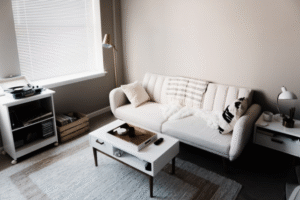Buying a home isn’t just a weekend decision; it takes time, research, and a bit of patience. For those thinking about stepping into the market for the first time, planning ahead can make all the difference between a stressful process and one that feels thoughtful and rewarding.
It’s not just about finding the right property. It’s about understanding what you really need, where you want to be in a few years, and how your financial choices today might affect your future. Starting early helps you prepare, ask better questions, and make choices with confidence.

Source: Unsplash (CC0)
Understand your budget
One of the biggest pieces of the planning puzzle is knowing how much you can afford. It’s not just the mortgage payment–it’s also taxes, insurance, maintenance, and even unexpected repairs. Starting your budget early helps you understand what’s realistic without putting strain on your everyday life.
When buyers take the time to explore their financial limits before falling in love with a home, they avoid the trap of overextending themselves. Budgeting also gives them space to save for upfront costs like a down payment or closing fees.
Think beyond the house itself
It’s easy to get caught up in the look and layout of a home, but it’s just as important to think about the neighborhood, commute, schools, and how the location fits into your lifestyle. Planning ahead helps you focus on what actually matters to your day-to-day life.
Choosing a place that fits your routine and your future plans often makes a bigger impact than a beautiful kitchen or finished basement. Taking time to explore different areas can also help you feel more settled once you’ve made your decision.
Build your financial foundation
Buying a home is a huge financial commitment, and building financial security beforehand helps reduce stress once you’re in. This might mean paying down debt, improving your credit score, or building an emergency fund before applying for a mortgage.
When your finances are in good shape, it’s easier to qualify for a better loan, get approved faster, and move forward without unexpected surprises. It also gives you more freedom and flexibility when it’s time to make an offer.
Take advantage of resources
There are plenty of tools and resources available to help you plan ahead. From mortgage calculators to homebuyer programs, doing your homework early on can help you spot opportunities that make homeownership more affordable or manageable.
Many of these tools are designed specifically for the first-time home buyer, offering everything from education courses to down payment assistance. These programs can make a big difference in how prepared you feel when the time comes to take the leap.
Stay flexible
While it’s great to plan, it’s also important to stay open to change. Market conditions, personal circumstances, or shifting priorities might require some adjustment, and that’s okay. The goal of planning ahead is to be more prepared, not to lock yourself into one idea.
Being flexible while staying focused on your overall goals helps you adapt when needed without feeling like you’ve lost your way. A little planning gives you the structure you need to roll with the unexpected.
